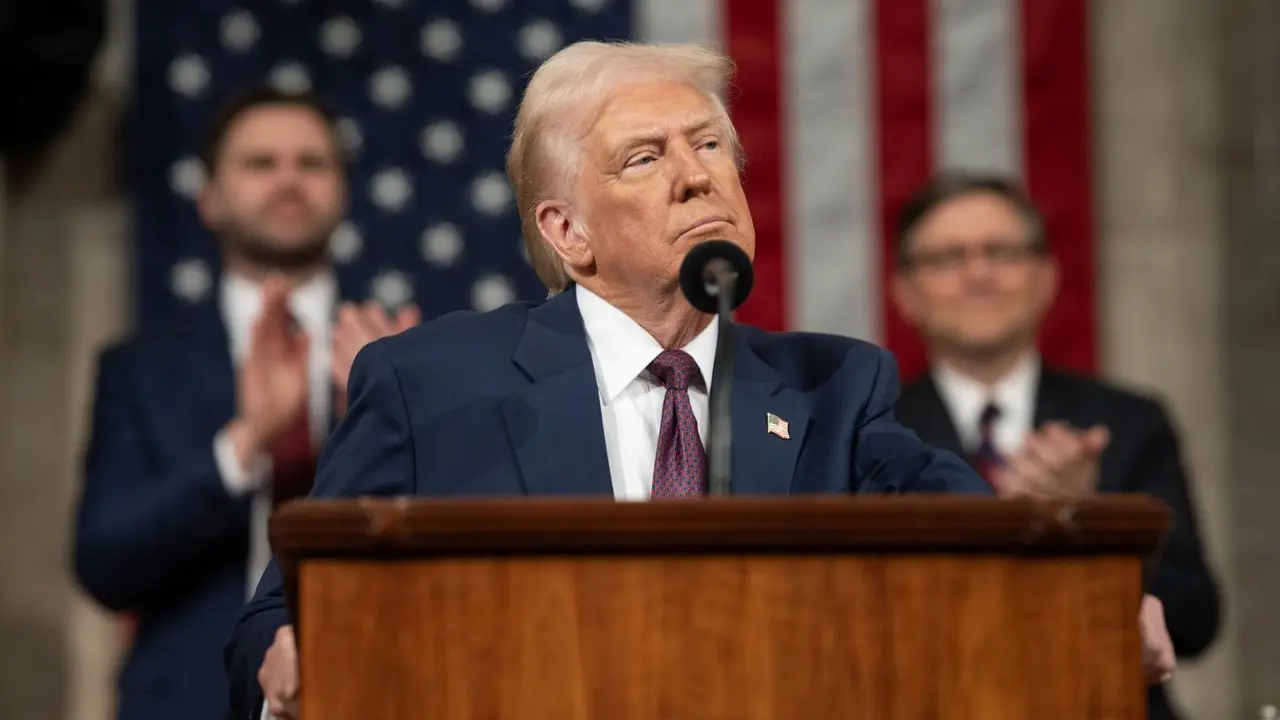Updated 18 May 2025 at 19:23 IST
Moody’s Downgrade Deepens Investor Anxiety Over U.S. Fiscal Future
The legislation, dubbed the “Big Beautiful Bill,” proposes sweeping tax cuts, increased spending, and reductions to safety-net programs.
- Republic Business
- 3 min read

Moody’s has cut the United States' sovereign credit rating by one notch, intensifying fears among investors over the country's deteriorating fiscal outlook. The downgrade — the last of the three major credit rating agencies to take such action — comes amid growing unease over the U.S. government’s $36 trillion debt burden and a controversial Republican-backed economic package under negotiation in Congress.
The legislation, dubbed the “Big Beautiful Bill,” proposes sweeping tax cuts, increased spending, and reductions to safety-net programs. While President Donald Trump has rallied behind the bill, its potential to add trillions to the national debt is stirring concerns among investors and analysts.
“This downgrade underscores growing investor skepticism about Washington’s fiscal discipline,” said Carol Schleif, chief market strategist at BMO Private Wealth. “Bond vigilantes will be watching closely, ready to raise borrowing costs if they see fiscal irresponsibility.”
Moody’s cited the inability of successive administrations to reverse ballooning deficits and rising interest costs as a key reason for the downgrade. While previous downgrades by S&P in 2011 and Fitch in 2023 shook markets, analysts say this latest move is more a psychological blow than a trigger for immediate market disruption.
Advertisement
Still, fiscal alarm bells are ringing. The Committee for a Responsible Federal Budget estimates the Republican proposal could add between $3.3 trillion and $5.2 trillion to the debt by 2034, depending on whether temporary provisions are extended. Barclays now projects the bill will increase deficits by $2 trillion over the next decade — a smaller figure than earlier estimates but still significant.
Markets are already flashing warnings. The term premium on 10-year Treasury bonds — the extra yield investors demand to hold long-term U.S. debt — has risen, a sign of growing discomfort with the country’s fiscal trajectory. Treasury Secretary Scott Bessent has vowed to contain long-term yields, which currently hover around 4.44%, slightly below levels seen before Trump took office in January.
Advertisement
Meanwhile, the White House has dismissed concerns, calling the Moody’s downgrade politically motivated. “The experts were wrong on tariffs, and they’re wrong again,” said Harrison Fields, deputy press secretary, pointing to what the administration claims are gains in investment and jobs.
But tensions remain high as the government nears its borrowing limit. Speaker Mike Johnson is pushing for a vote on the bill before the May 26 Memorial Day holiday, while the Treasury warns that without congressional action, the U.S. could run out of funds by August — the so-called “X-date.”
That anxiety is already reflected in short-term markets, where yields on Treasury bills maturing in August are noticeably higher than surrounding maturities — a clear sign of investor jitters about potential default.
With mandatory spending like Social Security and Medicare largely off the table, analysts doubt the bill will deliver a meaningful shift in fiscal direction. “This is an unsustainable course,” said Anne Walsh, chief investment officer at Guggenheim Partners. “Without a real reset on spending, the long-term fiscal outlook remains bleak.”
Read This Also: Nagaland Dear Lottery SUNDAY Lucky Draw OUT- Check Winners
Published By : Rajat Mishra
Published On: 18 May 2025 at 19:23 IST
